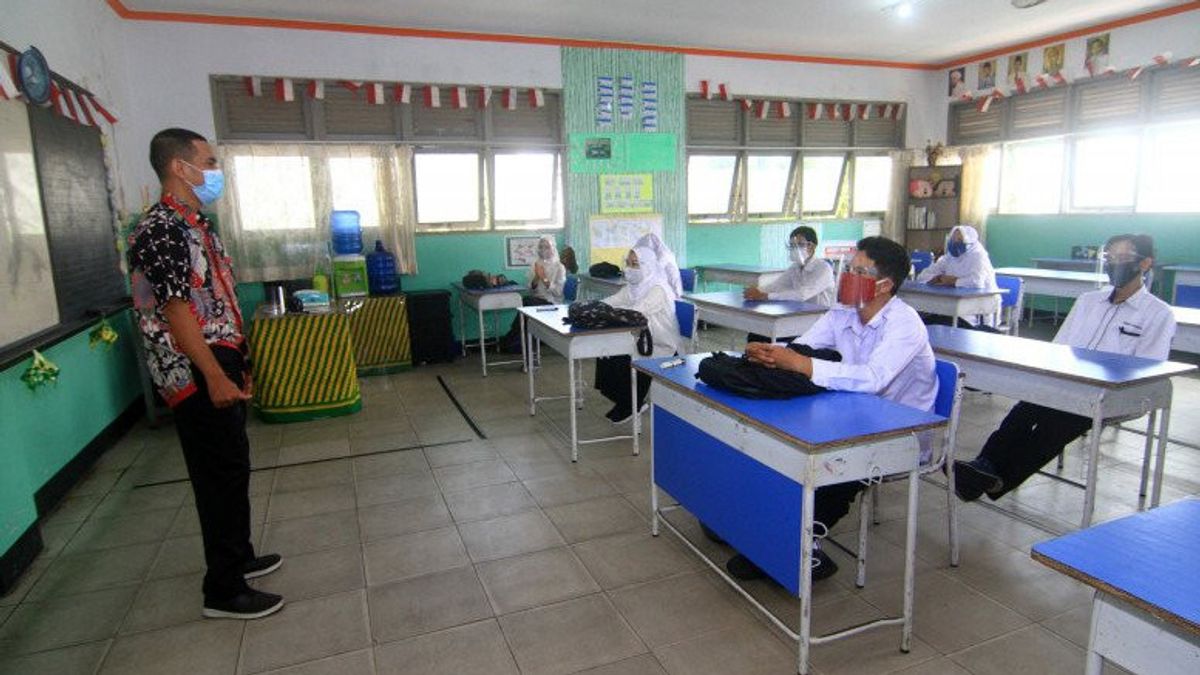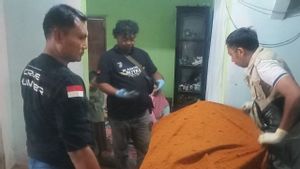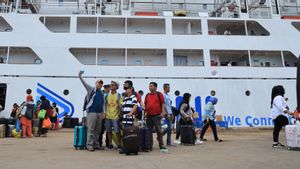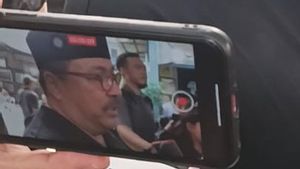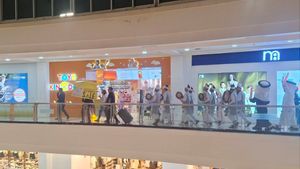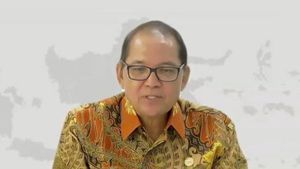DEPOK - The City Government (Pemkot) of Depok, West Java, has issued Depok Mayor Regulation (Perwal) Number 66 of 2021 concerning Guidelines for Implementing Limited Face-to-Face Learning (PTMT).
"This regulation was made to guide the implementation of health protocols (prokes) in the context of PTMT during the COVID-19 pandemic," said Depok Mayor Mohammad Idris as quoted by Antara, Thursday, September 30.
The Depok City Government will hold a limited PTM in schools starting October 4, 2021. The regulation issued on September 20 covers formal education, which consists of formal early childhood education (PAUD), starting from kindergarten, RA, and other PAUD units.
Then basic education consists of SD, MI, SMP, MTs, and other equal basic education units. Next, secondary education consists of SMA, SMK, MA, and other equivalent secondary education units.
As for non-formal education, it starts from course institutions and training institutions, study groups, community learning activity centers, taklim assemblies and non-formal early childhood education. Finally, special education includes special schools and other special education units.
The Perwal also regulates the procedures for Face-to-face Learning Meetings (PTM) in education units. Starting from the class conditions, during the transition period, educational units keep a distance of at least 1.5 meters and a maximum of 20 (twenty) students per class, except for kindergarten education units, play groups (KB), child care parks (TPA). ), Similar PAUD Units (SPS) keep a distance of at least 1.5 meters and a maximum of 10 students per class.
Meanwhile, during the new habit, education units maintain a distance of at least 1.5 meters and a maximum of 20 students per class. Except for Kindergarten Education Units, Playgroups (KB), Child Care Parks (TPA), Similar PAUD Units (SPS) keep a distance of at least 1.5 meters and a maximum of 10 students per class.
Meanwhile, regarding the number of days and hours of face-to-face learning with the division of study groups (shifts).
During the transition period, two days of face-to-face learning are limited to a duration of two hours (120 minutes)/day each. Then, the new habit period, two days of limited face-to-face learning with a duration of two hours (120 minutes) / day each.
Furthermore, regarding mandatory behavior in all educational units, during the transition period. First, using a two-layer surgical mask or a single-layer surgical mask with a cloth mask added to cover the nose and mouth to the chin and a see-through mask for students with hearing impairments.
Cloth masks are used every four hours or before four hours when they are damp/wet.
Second, wash hands with soap (CTPS) with running water or hand sanitizer. Third, keep a distance of at least 1.5 meters and do not make physical contact such as shaking hands and kissing hands. Fourth, apply coughing or sneezing etiquette.
Meanwhile, during the new habit, first, using a two-layer surgical mask or a one-layer surgical mask with a cloth mask added to cover the nose and mouth to the chin and a transparent mask for students with hearing impairments. Mask
cloth is used every four hours or before four hours when it is damp/wet.
Regarding the canteen, the transition period is not allowed. Residents of the education unit only bring drinks and are not allowed to bring food in the education unit. During the new habit, it is permissible to operate while maintaining health protocols.
Regarding sports and extracurricular activities, the transition period is not allowed in the education unit. During the new habit period, it is allowed, except for activities with the use of tools/facilities that must be held by many people alternately in a short time and/or do not allow the application of a minimum distance of 1.5 meters, for example: basketball and volleyball.
Furthermore, regarding activities other than learning in the educational unit environment, during the transition period, activities other than learning are not allowed, such as parents waiting for students in the education unit, taking breaks outside the classroom, meeting parents of students, introducing the environment to the education unit and so on.
Meanwhile, the new habit period is allowed while maintaining health protocols.
Finally, the matter of learning activities outside the educational unit environment, during the transition period, is abolished. Meanwhile, during the new habit period, it is allowed while still observing health protocols.
The English, Chinese, Japanese, Arabic, and French versions are automatically generated by the AI. So there may still be inaccuracies in translating, please always see Indonesian as our main language. (system supported by DigitalSiber.id)
